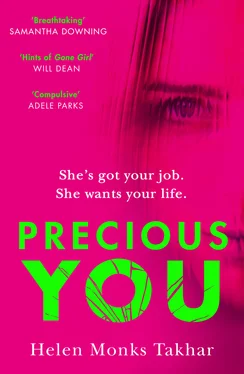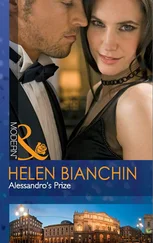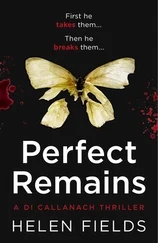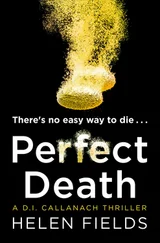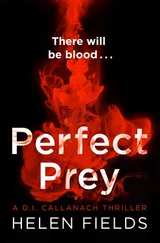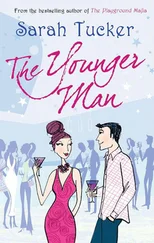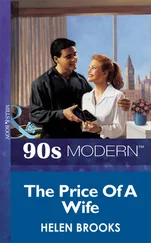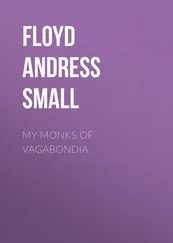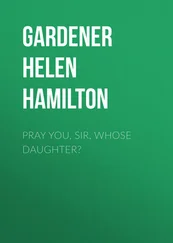‘So, where did it all start for you, being a journalist? I’d love to know. I’m so early in my journey, I know how much I need to learn!’
‘Well, I came down to London late nineties, worked in a pub for a bit, this was in the days when you could rent a room in Walthamstow for forty quid a week. I know, fucking ridiculous, right? I applied for work experience at every local paper all over London, but with no training, no degree and no connections, no one would look at me. Then one night, I was out seeing some mates in Islington and I saw these two guys start on some bloke. They had baseball bats. It was … ugly. My mates ran off home, fair enough, but I watched from across the way, got out my notepad and started getting down the details. Someone called the police and an ambulance. I managed to get some other eyewitness quotes and something from the police too. I told them and everyone else I was a reporter from the Islington Gazette . Then, I scooted back up the Victoria Line to my room, begged one of my housemates to borrow his PC, and filed the story to the Gazette . Just 250 words, but it was enough to persuade them I could come and do work experience. Pretty cool, eh?’
‘My god, yes! Amazing! Then what?’
‘I got there, loved it, worked my tits off, got on staff. The money was shit though. I knew I’d earn more on a trade mag. Junior news and features writer on Leadership was the first thing I applied for.’
‘And you got it.’
‘And I got it.’
‘And quickly became indispensable, then the youngest editor in the title’s history.’
‘Yes … Yes, that’s me. How did you—’
‘I’ve been proofing biographies for the awards supplement?’
I nodded. It sounded feasible.
‘I want you to know, I have, like, so much respect for your experience and how you’ve come up the ranks. It’s inspiring. I also really want you to know, I’m so embarrassed about the Gem-making-us-do-copy-camp-thing. I basically begged her not to make us do it. But she’s got her “own ideas” about how she’s going to run things, even though she has basically zero experience in journalism. But who are we to talk her down?’
We.
I liked how that sounded, so much. Too much. It resonated around my loneliness, arousing something deep and dormant. You and me: friends. The cub reporter and the grizzled editor, an alliance across generations against ‘the man’, or woman, in this case.
‘Don’t worry about it. I’m sure it’ll be fine,’ I said, swallowing the end of my second gin.
‘But I really do. I’m such a worry-wort. Are you a worrier? Sorry, I’m not talking about, you know, your time off or anything.’
‘My beige period ?’ I tried to laugh.
‘Could I ask … was there a trigger for what happened to you?’
I sighed and looked at you side on, my head cocked to show you I was trying to decide whether to share my private thoughts with you or not. But at that point, it was just that: a show. The sad fact was, I was dying to tell you everything about me. While I was still, apparently, thinking about it, you added, ‘You don’t need to worry about me. You can trust me.’ And I wanted to believe you. I wanted to forget about the taxi ride and your holding back the truth about how you came to my magazine. I wanted to put all that to one side, chalk it up to coincidences and let myself believe the only thing for me to worry about was my failing talent. I wanted to let you convince me this was the case and at times like those, you were so dreadfully convincing.
‘I’m not worried about you.’ Probably the greatest lie I told myself about you, worse than convincing myself you were a friend-in-waiting.
‘Because I think you’ll find I could be very good for you. If you give me a chance.’
And your smile shone at me again as you moved one hand out across the table in my direction, reminding me of my young self again, that combination of steel and softness.
It’s then I saw it clearly: I could mentor you. We could go through the whole copy camp charade, but I’d bring you round to my way of doing things, share with you everything I knew. I would mentor you and in return you could teach me the ways of your digital world. We’d be unstoppable. We’d propel the magazine and website into the stratosphere. More readers, more advertisers, more sponsors, more everything. I would initiate our partnership by conceding to your absurd millennial vocabulary.
‘Triggers for my illness … Well, I would say it wasn’t just one thing and I’m not sure I wholly believe in triggers, not for me anyway. I’d had hard times before and they hadn’t got me down, not down -down. If anything, the dark days got me up, off my feet. Then when I got ill, it was just … total. I felt flattened, the world didn’t look like the world anymore. It’s hard to explain, but I don’t think it was just a case of, “Oh my god, we’re broke,” or “Oh my god, am I really celebrating my fortieth birthday at Leadership ?” or any one thing that pushed me over the edge. It was nothing and everything.’ I shrugged, as if I was talking about some mysterious thing that had happened to me a very long time ago. You changed tack.
‘Wow. So from the late nineties to now, that’s like, a whole bunch of time. Leadership must be like a home-away-from-home.’
‘It is, or it was, before everything changed.’
‘Maybe it can be again?’ you said softly and I had to look away so you couldn’t see how much you’d moved me.
‘Sometimes I … I feel as if I’ve let Leadership down. I’ve let myself down. I know we’re going to be OK; I know we can survive using a rolling buffet of interns to keep the lights on and sponsored content to pay me.’ You visibly bristled at this, I ignored it. ‘But I can still see it, we’re slipping behind editorially. Readers, they’re so fickle these days. I’ve seen the data. They skip through a story that took a week to put together for the magazine in fifteen fucking seconds on the website and I don’t know why. You know, I did see the digital revolution coming? I thought I could ignore it, but it got bigger and bigger, so much bigger than I thought it ever would, until it changed fucking everything and it feels like I don’t get anything anymore.’ I saw some bubbles of spit land on my sleeve on the ‘m’ of ‘more’. I was literally, as you would say (correctly for once), frothing at the mouth. ‘Sorry. I—’ I began and you rubbed my forearm. ‘I don’t usually spill my guts like this.’
‘Well, get used to it, boss. OK? Shall we get a bottle of something red and warming?’
‘Yes! Allow me. Fuck it all, right?’
I noticed you recoiled slightly whenever I swore. I suppose I naturally swear a lot, but I’d always thought most journalists were prone to sweariness, whatever their age. As much as I believe people like you need to toughen-up, I didn’t like the faint tell as the skin under your eyes tightened at each curse. Before too long into our night, I stopped the ‘fucks’ and ‘cunts’ and even the ‘arseholes’. I started to feel less angry in doing so. You helped me soothe myself. Maybe you millennials were actually onto something.
It began to feel, as we sat there in the corner of The George that night, when tourists and beery workmates came and went around us unnoticed, that you and I were really communicating. I felt the warmth of a couple of gins and a bottle of Rioja and the full flush of releasing all the conversation I had pent up in me. And it was thrilling to observe your pristine complexion up-close, the swell of your cheeks, the way you tapped the white triangle of skin above your tangerine v-neck from time to time. My skin once glowed like yours.
Читать дальше
